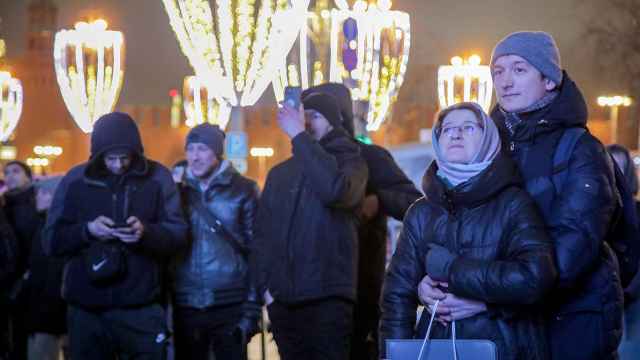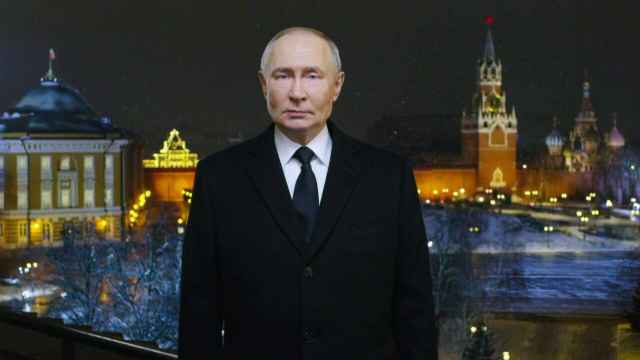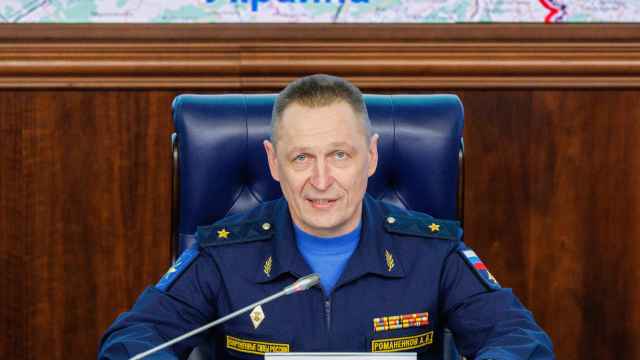European Union leaders said Friday that the door to a closer partnership with Ukraine remained open but not necessarily for the current Ukrainian leadership, which chose a bailout from Russia in preference to a trade deal with Brussels.
At a summit in Brussels, EU leaders held a postmortem on Ukrainian President Viktor Yanukovych's last-minute U-turn, dashing the bloc's ambition to draw a giant eastern neighbor into its orbit by offering a trade and aid pact to the former Soviet republic.
"Europe is open for Ukrainian people but not necessarily for this government. That is the message," said Lithuanian President Dalia Grybauskaite, who hosted a summit in Vilnius last month at which Yanukovych spurned an association agreement with the EU.
Grybauskaite's comments to reporters reflected ambiguity in the 28-nation bloc about whether to offer Ukraine the ultimate prospect of EU accession or only an economic partnership that would stop short of membership rights.
"Europe is open to the Ukrainian people, and any time the Ukrainian state is ready, with all conditionalities, to join the EU in the future, or to sign an association treaty, we will be open for it," she said.
While former communist countries that have joined the EU see Ukraine as a candidate for membership in the long run, many western European states, including France and Germany, have suffered growing enlargement fatigue as the bloc has expanded eastwards. To them, any membership commitment to Ukraine goes too far.
Ukrainian officials and diplomats in Kiev said fierce Russian economic pressure and the unwillingness of the EU and the International Monetary Fund to offer more aid and be more flexible prompted Yanukovych to change his mind.
EU officials made the choice harder for Yanukovych by insisting he free his biggest political rival, former Prime Minister Yulia Tymoshenko, to go abroad for medical care.
Brussels has also sent mixed signals about the amount of aid that Ukraine stood to receive — between 600 million euros and up to 19 billion euros over seven years. But there was no hint of introspection in EU leaders' public comments on Friday.
The Ukrainian leader reached a deal with President Vladimir Putin this week on a $15 billion bailout and a big cut in the cost of Russian gas supplies to Kiev.
It is not clear what Moscow gained in return, beyond the satisfaction of blocking the EU's geopolitical outreach to a country it regards as the cradle of its own nation. Yanukovych made no commitment to join a Russian-dominated customs union.
The Ukrainian leader, whose Party of Regions is strongest in the eastern, Russian-speaking part of the country, also had to juggle his own political survival and the economic interests of his family and oligarch supporters.
Other EU leaders made clear that they wanted to continue working towards a free-trade agreement under which Kiev would adopt many of Brussels' single market rules, but they rejected calls from Yanukovych's government to offer more financial help.
"This is not a question of money," Finnish Prime Minister Jyrki Katainen said. "Signing an association agreement is a value choice, and we cannot buy any countries for the EU."
"We, of course, are ready to invite Ukraine to [move] closer to the EU, and it is up to the Ukrainian people what do they want," Katainen said. "Of course, we want that people could make a fair and clear decision themselves."
Hundreds of thousands of Ukrainians have demonstrated in sub-zero temperatures against the snub to the EU, calling for closer ties with the wealthy European bloc that they associate with democracy, human rights and cleaner government.
Luxembourg Prime Minister Xavier Bettel said the EU should keep Ukrainians' hopes alive without joining a bidding war.
"We are not carpet traders where it is a question who is bidding more," he said. "It is not about who offers the most."
A Message from The Moscow Times:
Dear readers,
We are facing unprecedented challenges. Russia's Prosecutor General's Office has designated The Moscow Times as an "undesirable" organization, criminalizing our work and putting our staff at risk of prosecution. This follows our earlier unjust labeling as a "foreign agent."
These actions are direct attempts to silence independent journalism in Russia. The authorities claim our work "discredits the decisions of the Russian leadership." We see things differently: we strive to provide accurate, unbiased reporting on Russia.
We, the journalists of The Moscow Times, refuse to be silenced. But to continue our work, we need your help.
Your support, no matter how small, makes a world of difference. If you can, please support us monthly starting from just $2. It's quick to set up, and every contribution makes a significant impact.
By supporting The Moscow Times, you're defending open, independent journalism in the face of repression. Thank you for standing with us.
Remind me later.





